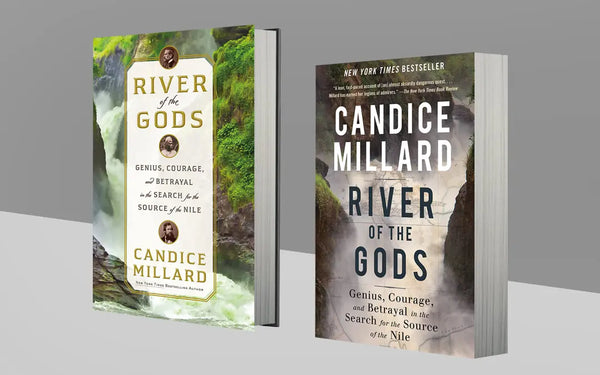River of the Gods: Genius, Courage, and Betrayal in the Search for the Source of the Nile

River of the Gods: Genius, Courage, and Betrayal in the Search for the Source of the Nile
Give us a ship trapped in ice or desperate travelers sitting on frozen boot food. Better still, it lays the foundation for two rival Victorian novels set in East Africa, burning with hatred for one another, frail, half-starved and half-blind, obsessed with solving a mystery that has yet to mock the world for 2,000 years. Discover this wonderful account of two friends who have turned into enemies with the privilege of White Rain Book House. "River of the Gods" is a simple and quick account of the very dangerous quest of two friends, Richard Burton and John Speke, to solve geographical riddles.
The two men set out to find the source of the Nile in 1857. We recommend this book as the "White Rain Book House" for lovers of relentless adventures in magnificent geography. Here, Candice Millard, former National Geographic writer and editor and author of a gripping book about Teddy Roosevelt's adventures in South America, writes another tale of discovery on the brink of disaster. The quest for the river Nile is a pursuit not only for fame and glory, but also to satisfy their adventurous souls. Burton, six years older and more experienced than Speke, became the expedition leader and Speke second-in-command. They had to work well and harmoniously together. S
peke was a gifted cartographer and geographer, while Burton was a surprisingly gifted linguist. Both were fearless and ambitious, but they had nothing else in common. Burton was a scholar and adventurer, the first Englishman to travel (in Muslim guise) to the city of Mecca and a linguist who spoke 25 languages. He was also a translator who would one day bring forth the Kama Sutra and "Arabic Nights". Speke was a more traditional character, a soldier from an aristocratic family. In its most general form, it is the story of the transformation of two ambitious friends who quickly become fierce enemies. You'll enjoy reading about a pair of misfit explorers coming together for the same cause. At one point, Burton and Speke find themselves struck by a series of mysterious pains and illnesses. In three months of their journey, they came to a 7,000-foot-high mountain range. Burton, trembling with pain, deafened ears with weakness, and tired limbs, falls into a stubborn despair.
Speke needed the support of three men to survive. Then his fever rose and he went crazy in delirium. The Porters took their guns for everyone's safety. The food supply that the expedition should have lasted for a year is nearly exhausted. Burton, Speke, and other explorers continued on their way like armies on the move in caravans of 100 or 200. Many of the ways they followed were laid out over the centuries by African and Arab traders for ivory and enslaved people. Even in the 1850s, these trading caravans continued to flourish. All over East Africa, Millard writes, "the shackling of people was still a common and everyday occurrence."
After the expedition leaves Zanzibar, the duo's mismatch is revealed for the first time.She leaves some important parts of the story to the reader's imagination but takes a firm stand against aspects that are sometimes underestimated, such as slavery and the slave trade in the exploration effort. Although Burton and Speke are against slavery as an institution, they are contradictory by hiring enslaved people as porters (paid). In this way, Millard explains all these troubles of geography in a fluent language.








